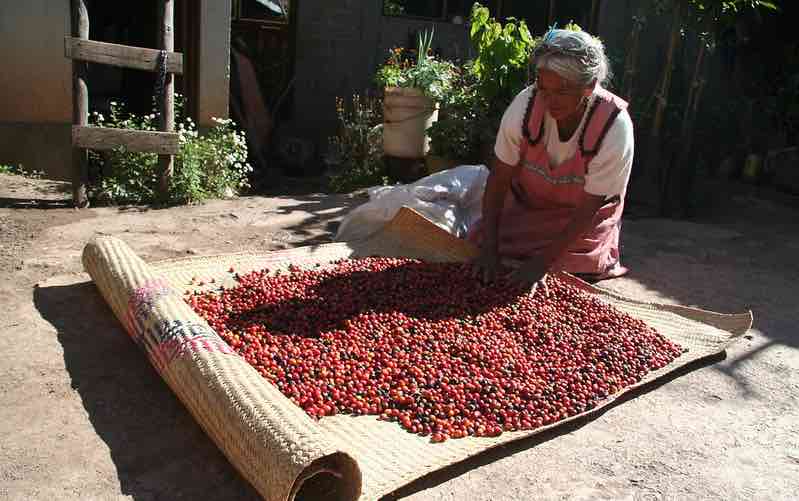First in a series of seven posts on briefs by the Think20 (T20) task force on Sustainable Energy, Food, and Water Systems. T20 is a G20 engagement group that connects and collaborates with think tanks around the world to provide ideas and recommendations. The task force is one of 10 advising this year’s Saudi Arabia G20 Presidency. Read the second post here.
In many places around the world, intensive crop production systems are degrading natural resources and contributing to climate change. It is clear that more sustainable, environmentally-friendly production systems are needed—and efforts to achieve global food security should involve a careful, integrated, collaborative approach to ensure the efficient and sustainable use of land, water, and energy at the global level.
Given ongoing problems of regional food production and consumption imbalances, trade plays a crucial role in addressing this challenge. A smooth global food trading system that makes markets more predictable can both facilitate improved food security and support more sustainable production systems. However harmful trade policies continue to make this goal elusive.
In response to the COVID-19 crisis, some countries have rapidly taken measures that negatively impact international trade flows and food availability and that generate greater food price variability. These types of measures are inconsistent with global food security goals—as well as with the need to protect natural resources.
Despite the increasing importance of promoting sustainable food systems for global food security, the World Trade Organization (WTO) has not considered this issue seriously enough in international trade negotiations in recent decades. Global leaders should pay more attention to the extent to which trade barriers not based on evidence harm food security, compound climate change, and reduce the availability of natural resources.
In the context of this weakened international dialogue, the G20 could play an important role by promoting policies and measures to facilitate dialogue and information exchange and to foster agreements between food trading partners based on a more open global trading system.
This T20 Policy Brief suggests a strategy for more sustainable agricultural trade and development. The brief puts forth two proposals covering improvements in sustainable crop production and the promotion of information exchange to foster trade agreements between food trading partners:
Increase agricultural productivity and total food availability while taking impacts on climate change and natural resources into account. Some countries have implemented environmentally-friendly technological innovations and production processes that have increased competitiveness and productivity. Some of these technologies and strategies could be adopted globally. Doing that requires systematizing a large amount of information and a coordinated global strategy. Improvements in the measurement of sustainable crop production practices such as no-till and cover crop practices will be needed, as will further research into the accurate measurement of productivity, soil recovery, water availability in relation to cultivated land, and overall arable land availability.
Build balanced and sustainable global production systems and a smooth agricultural trading system. Current trade tensions between the United States and China have introduced volatility, uncertainty, and trade diversion into certain food commodity markets. For example, the price and quantity of soybeans exported by Brazil to China were significantly affected by the import tariff China imposed on U.S. imports (Gale, Valdes, and Ash, 2019). Given the COVID-19 crisis and the risk of additional trade restrictions and other economic impacts, policy makers must understand the potential impacts of such actions on food security in net importing countries and on macroeconomic stability in food exporting countries.
One approach would be for the G20 to create and facilitate a special group of member countries within the WTO with high interest in agricultural trade and environmental sustainability. This group would be aimed at promoting dialogue, discussing proposals and progress in special trading agreements to facilitate agri-food trade, and promoting environmentally sustainable practices. The G20’s Agricultural Market Information System (AMIS) could be used to create this group and provide a space for dialogue and the collection of relevant information, such as sustainability indicators. GEOGLAM (Group on Earth Observations Global Agricultural Monitoring), another G20 initiative, could be used to measure carbon sequestration and balance using earth observation technologies at a global and national level.
A smooth global food trading system can make several important contributions to environmental and food security. These justify all possible efforts to sustain and strengthen global governance systems such as the WTO that contribute to a vibrant multilateral trading system serving all countries and encouraging a more viable and prosperous world.
Valeria Piñeiro is a Senior Research Coordinator in IFPRI’s Markets, Trade and Institutions Division; Pablo Elverdin is a Strategy and Content Coordinator with the Group of Producing Countries of the Southern Cone (GPS). Martin Piñeiro is Chair of the Committee on Agriculture of the Argentine Council of International Relations (CARI). Estefania Puricelli is a Agricultural Economist with FAO. Marcelo Regúnaga is a member of CARI. Federico Villarreal is Director of Technical Cooperation at the Inter-American Institute for Cooperation on Agriculture (IICA). This post also appears on the Food Security Portal blog.







